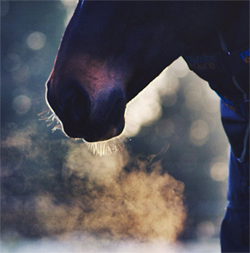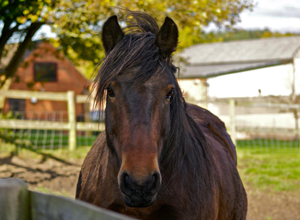Posted by EquiFeast on 4th Nov 2016
What does winter mean for laminitis sufferers?
So winter is here, the grass has stopped growing and your horse is probably going to be spending more time in than out. So now you can stop thinking about laminitis, right?
Not quite!
This time of year, whilst not as commonly associated with
metabolic issues as the spring, can cause just as many issues, although on the
plus side, it can be a great time for getting on top of you horse’s weight.
Whilst not an exhaustive list of considerations, below are just a few of the things you may want to be thinking about at this time of year:
Fearing the Frost!
Ok, so that is a little dramatic, but it is true that grazing which has been exposed to frost can cause issues (including relapses) for lami-prone horses. In very basic terms, frost will ‘stress’ the grass and when grasses become stressed, they store sugars, sugars which can then end up in your horse!
The easiest way to overcome this is to avoid turning out when there is a frost. However, this is not always practical, so an alternative to consider is providing suitable forage for your horse to eat whilst the frost is out.
Weight loss is a good thing!
Horses are naturally ‘designed’ to gain weight in the summer when the grazing is more nutritious, and lose it in the winter when their grazing is sparse. If you have a good-doer, use this to your advantage! Find a forage type and exercise routine which works for you and your horse, and get on top of this now. If you do, then it’s likely that the spring (and the almost inevitable weight gain), will not be quite so dramatic. And remember that just because they are in, it doesn’t mean they need a big bowl feed…no matter how sweetly they look at you over their stable door!

Is a rug necessary?
With the enormous variety of rugs on offer, with every combination of style, thickness and colour you can think of, it is often very tempting to have and use a whole wardrobe-full on your horse. However, keeping the above point about weight loss in mind, is it really the right thing for your horse? Now, there will always be some exceptions – such as clipped and older horses etc. – but provided that good shelter is on offer, the majority of horses carrying a good weight, with a decent coat will be more than happy to go without.
